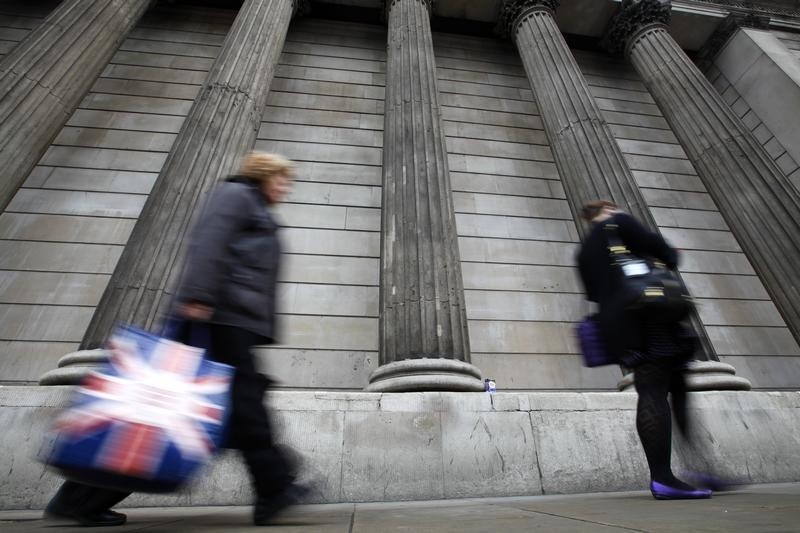Investing.com - The Bank of England has told British banks they will have to set aside more than £11 billion in extra capital to cover potential losses in the event of a financial downturn it said on Tuesday.
In its financial stability report, the BoE said it was raising the counter-cyclical capital buffer rate to 0.5% from zero, which means that lenders must set aside 0.5% of their assets as capital to cover potential losses if the economy weakens.
The BoE said it expects to raise counter-cyclical capital buffer rate again at its November meeting to 1%.
The step is one of a series of measures intended to protect the financial system from the growth in consumer finance.
The BoE also said it is moving forward its planned stress test on consumer credit lending to September, from November. The test is designed to measure whether lenders can withstand an increase in consumer credit losses.
The report said that the bank is also stepping up its work on cybercrime and continuing efforts to mitigate risks to financial stability from Brexit.
The overall risks from the domestic environment are at a “standard level”, the report said, with most indicators neither “particularly elevated nor subdued”.
But BoE Governor Mark Carney noted that there are some risks that require particular vigilance, including consumer credit and Brexit.
Carney said growth in consumer credit has “far outpaced” household income in the last year, including credit cards and loans to buy new homes, leaving lenders vulnerable to a downturn.
On Brexit, Carney said the bank is making contingency plans for all possible outcomes, and concentrating on those which would have the greatest impact on the economy, including the possibility that the UK exits the EU without a deal.
